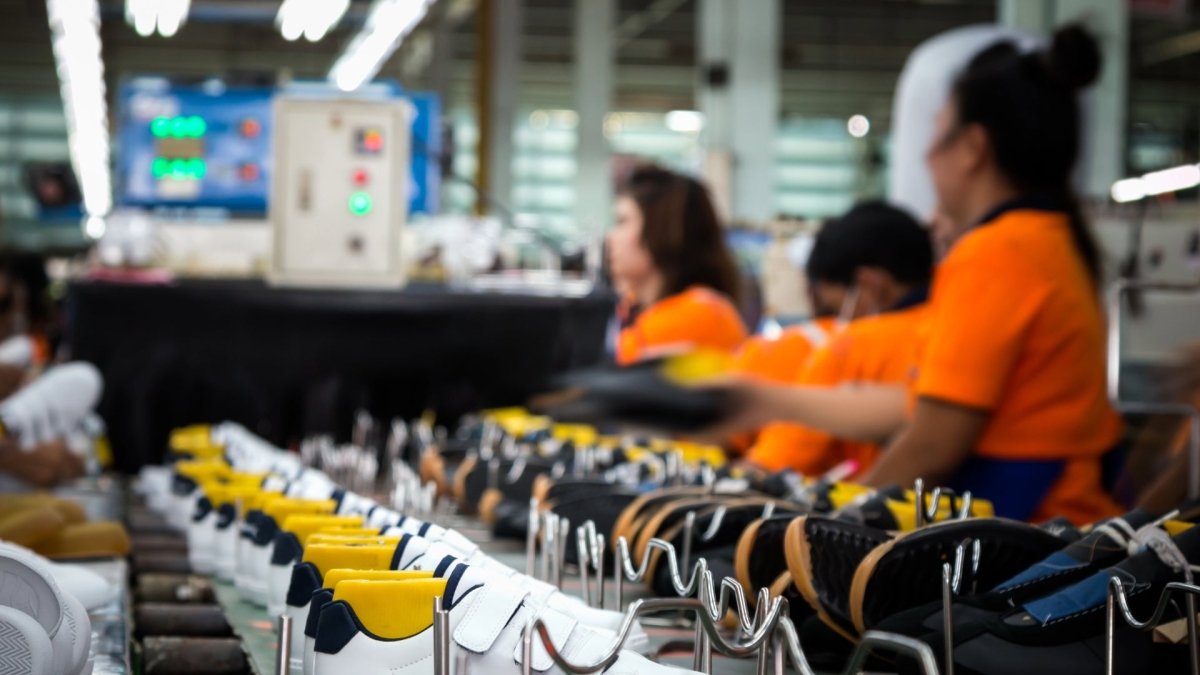The High Price We Pay for Bargain Footwear

Shoes are one of those purchases we don't think twice about. We see a pair we like for a temptingly low price and toss it in our shopping basket without consideration. But we should be more mindful about our footwear purchases. The hidden ethical and environmental costs behind cheap shoes are much higher than their price tags suggest.
Fast fashion retailers have made trend-led shoes incredibly affordable. It's easy to pick up a pair of synthetic leather boots or fabric pumps for £10-20. But how can quality shoes be produced and sold so cheaply? The answer often lies in exploitative overseas labour practices and environmentally harmful production methods.
The True Cost of Cheap Labour
Behind those £5 heels is likely a factory worker earning as little as 13p an hour (BMJ 2014). Shoe production has primarily moved to developing countries where labour is incredibly cheap and often unethically so. In countries like Bangladesh, China and India, workers endure long hours in poor conditions to meet unreasonable production targets.
Factories cut corners on safety. The 2013 Rana Plaza collapse in Bangladesh, which killed over 1,000 garment workers, is a tragic example. Others overlook worker rights and minimum wage laws. A 2019 investigation found some Chinese shoe factories paid workers just £147 per month - half the minimum wage.
Cheap shoes also impact shoe factory workers in wealthier countries. Rising competition from overseas has led companies to drive down wages and worsen job conditions in a bid to compete (Card & Dinardo, 2002). The human cost is high no matter where bargain footwear originates.
The Environmental Impact of Synthetic Shoes
Cheap shoes also often use synthetic materials like polyurethane (PU) and polyvinyl chloride (PVC) instead of leather. These come with an environmental cost.
The glues used to bond layers of synthetic materials require toxic solvents like dimethylformamide (DMF) that pollute nearby water and soil (Changing Markets Foundation, 2021). DMF exposure causes nausea and headaches in factory workers and congenital disabilities in pregnant workers (Liu et al., 2018).
Producing polyurethane releases carcinogenic compounds like toluene diisocyanate (TDI) into the environment (Dahlben et al., 1990). Exposure to TDI damages factory workers' lungs and respiratory systems. Burning PU foam, a common shoe factory practice, creates dioxins that cause cancer and congenital disabilities (Wang et al., 2003).
When synthetic shoes end up in landfills, they leach hazardous chemicals as they break down. They also take centuries longer to decompose than leather shoes. As demand for cheap footwear grows, so too does plastic pollution.
Encouraging Conscious Consumption
Cheap shoe production exploits people and the planet. What marginal savings are worth such ethical and environmental costs? As consumers, we can make a difference through mindful purchases.
Seeking ethical brands is one step, though higher prices often exclude lower-income buyers. For many, the priority is simply obtaining functional, lasting footwear. This makes buying better-quality shoes critical.
Leather shoes from reputable brands deliver comfort and durability. With care, a quality pair can last for years, representing better value than boots worn just one season. Repairing, resoling, and polishing can extend their lifespan further.
Thoughtful shoe purchases represent investments in ethical manufacturing, environmental stewardship and personal foot health. The higher sticker price brings peace of mind that the cost behind well-made shoes supports communities, not exploits them.
Next time a too-good-to-be-true deal tempts you, consider what's hidden behind that bargain bin price. Your feet and the planet will thank you.
